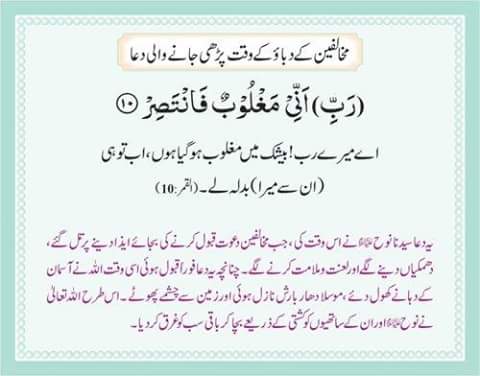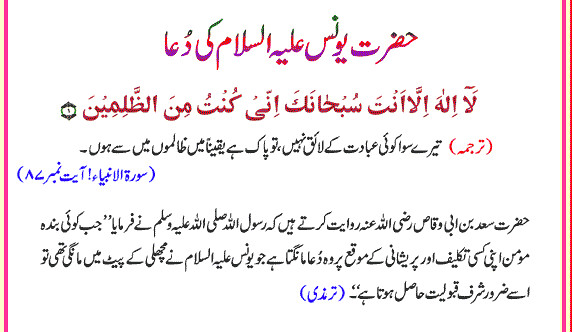Hazrat Adam Ki Dua In Arabic With Tarjuma (حضرت آدم علیہ السلام کی دعا ترجمہ کے ساتھ)
Hazrat Adam (peace be upon him) is considered the first prophet and human being in Islamic tradition. His supplication, often referred to as “Hazrat Adam ki Dua,” is a heartfelt prayer of repentance that he made to Allah after committing the mistake of eating from the forbidden tree. This dua is mentioned in the Quran and holds significant importance in understanding the concepts of repentance (Tawbah) and forgiveness in Islam.

The specific dua made by Hazrat Adam and Hawwa (Eve) is found in Surah Al-A’raf (7:23). It is a beautiful expression of remorse and plea for forgiveness:
Hazrat Adam ki Dua in Arabic
رَبَّنَا ظَلَمْنَا أَنْفُسَنَا وَإِنْ لَمْ تَغْفِرْ لَنَا وَتَرْحَمْنَا لَنَكُونَنَّ مِنَ الْخَاسِرِينَ
Hazrat Adam ki Dua in Urdu
"اے ہمارے رب! ہم نے اپنی جانوں پر ظلم کیا، اور اگر تو نے ہمیں معاف نہ کیا اور ہم پر رحم نہ کیا تو ہم نقصان اٹھانے والوں میں سے ہو جائیں گے۔"
Hazrat Adam ki Dua in English
“Our Lord, we have wronged ourselves, and if You do not forgive us and have mercy upon us, we will surely be among the losers.”
Allah created Adam and his wife Hawwa and placed them in Jannah (Paradise) with the command not to approach a particular tree.Shaitan (Satan) deceived them into eating from the tree, leading to their disobedience of Allah’s command.Realizing their mistake, they turned to Allah in sincere repentance, acknowledging their wrongdoing and seeking His mercy and forgiveness.
Hazrat Adam’s dua is a profound example of seeking Allah’s mercy and forgiveness. It teaches Muslims the importance of repentance, humility, and the endless mercy of Allah. By regularly reciting this dua, believers can draw closer to Allah, cleanse their hearts, and seek spiritual and emotional well-being.
Hazrat Nooh Ki Dua in Quran With Urdu Translation (حضرت نوح علیہ السلام کی دعا اردو ترجمہ کے ساتھ)

Hazrat Nooh (Noah) (peace be upon him) is one of the prominent prophets in Islam, known for his unwavering faith and persistence in calling his people to the worship of Allah. His supplication, or “dua,” is significant as it reflect his deep connection with Allah and his earnest pleas during times of difficulty.
Hazrat Nooh Ki Dua in Arabic
رَبَّهُ أَنِّي مَغْلُوبٌ فَانْتَصِرْ
Hazrat Nooh Ki Dua in Urdu
-اے اللہ! میں مغلوب ہوں تو میرا بدلہ لے
Hazrat Nooh Ki Dua in English
My Lord, I am helpless, so help me!
Hazrat Nooh spent centuries calling his people to monotheism and warning them of Allah’s impending punishment if they did not repent and believe. Despite his prolonged efforts, only a few followed him, while the majority rejected his message and persisted in their disbelief and transgression. This dua reflects his final plea to Allah for mercy on the believers and destruction for the persistent wrongdoers.
The dua underscores the concept of divine justice, where wrongdoers are held accountable for their actions. It serves as a reminder of the consequences of persistent wrongdoing and the importance of aligning with righteousness.
Hazrat Younus Ki Dua Ka Wazifa In Arabic (حضرت یونس علیہ السلام کی دعا اور وظیفہ)

Hazrat Younus (Jonah) (peace be upon him) is a prophet mentioned in the Quran who is known for his story of patience and repentance. His supplication, or “dua,” is particularly significant as it was made in a moment of extreme distress and was met with Allah’s immediate mercy and forgiveness. This dua is widely recited by Muslims seeking Allah’s help and forgiveness.
Hazrat Younus Ki Dua In Arabic
لَا إِلَٰهَ إِلَّا أَنْتَ سُبْحَانَكَ إِنِّي كُنْتُ مِنَ الظَّالِمِينَ
Hazrat Younus Ki Dua In Urdu
تیرے سوا کوئی معبود نہیں ہے، تُو پاک ہے، میں بے شک ظالموں میں سے ہوں۔
Hazrat Younus Ki Dua In English
"There is no deity except You; exalted are You. Indeed, I have been of the wrongdoers."
The story of Prophet Yunus (AS) is narrated in the Quran (Surah Al-Anbiya, verses 87-88). He was entrusted with a message to guide a community, but he became frustrated and left his people without Allah’s (SWT) permission. As a consequence, he faced a series of trials, including being swallowed by a large fish. In the darkness of the fish’s belly, Prophet Yunus (AS) realized his mistake and turned to Allah (SWT) with this powerful dua. Allah (SWT) responded to his sincere plea, saved him from the fish, and allowed him to return to his people and fulfill his mission.
Hazrat Yunus (AS) ki Dua is a powerful and timeless message. It serves as a beacon of hope, reminding us that Allah’s (SWT) forgiveness is always available to those who seek it with a sincere heart.